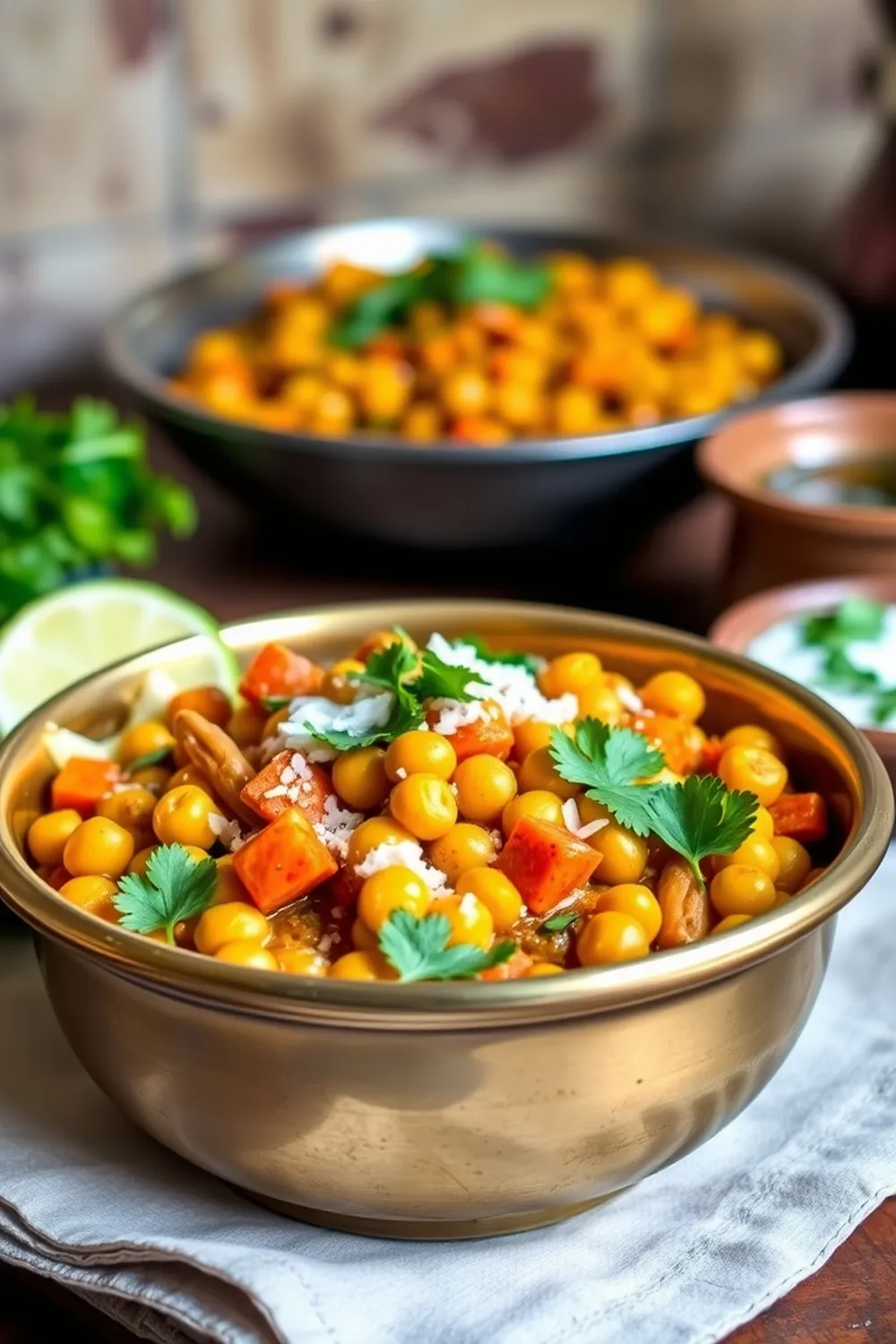- Wash radish greens thoroughly, remove thick stalks, and finely chop.
- Crush grated coconut with cumin seeds (or pulse briefly in a mixer without water).
- Heat oil in a pan. Add mustard seeds, urad dal, red chilies, and hing for tempering.
- Sauté chopped onions and garlic until translucent.
- Add chopped radish greens and salt. Cook covered until tender, sprinkling water if needed.
- Mix in coconut-cumin mixture and stir well. Remove from heat.
- Serve warm as a side dish with rice or roti.
- Calories:45 kcal25%
- Energy:188 kJ22%
- Protein:2 g28%
- Carbohydrates:5 mg40%
- Sugar:1 mg8%
- Salt:150 g25%
- Fat:3 g20%
Last Updated on 2 months by Neha Deshmukh
Radish Greens Recipe – Authentic Indian Stir-Fry with Coconut & Cumin
Hey everyone! Today, I’m sharing a recipe that’s close to my heart – a simple yet incredibly flavorful stir-fry made with radish greens. It’s a dish my grandmother used to make, and honestly, it’s one of those recipes that just feels like home. It’s quick, easy, and a fantastic way to use every part of the radish! Don’t usually think about radish tops being edible? Trust me, you’re missing out.
Why You’ll Love This Recipe
This radish greens recipe (also known as Mooli ke Patte ki Sabzi in Hindi) is a hidden gem of Indian cuisine. It’s packed with nutrients, bursting with flavor, and comes together in under 30 minutes. Plus, it’s a brilliant way to reduce food waste! It’s a little different from your usual Indian vegetable dishes, but that’s what makes it so special. You’ll love the subtle sweetness of the radish greens combined with the nutty coconut and aromatic spices.
Ingredients
Here’s what you’ll need to make this delicious stir-fry:
- 1 ½ cups Radish greens
- ¼ cup Coconut, grated (about 30g)
- ½ tsp Cumin seeds
- 6 Garlic cloves
- 1 Onion, medium
- 3 tsp Oil (about 15ml)
- Salt, to taste
- 1 tsp Mustard seeds
- ½ tsp Urad dal (split black lentils)
- 2 Red Chillies, dried
- 1 pinch Asafoetida (Hing)
Ingredient Notes
Let’s talk about a few key ingredients to make sure your dish turns out perfectly!
- Radish Greens: The fresher, the better! Look for vibrant green leaves that aren’t wilted or yellowing. We’ll talk more about spotting fresh greens down in the FAQs.
- Coconut: Freshly grated coconut really elevates the flavor, but unsweetened desiccated coconut can be used in a pinch (about the same quantity).
- Asafoetida (Hing): This is a powerhouse of flavor! It has a pungent smell in its raw form, but it mellows out beautifully when cooked, adding a savory, umami depth. It’s also fantastic for digestion. Some regions use a tiny bit of turmeric in the tempering instead, or alongside the hing.
- Tempering: The mustard seeds, urad dal, and red chillies are the foundation of the tempering – a crucial step in Indian cooking that infuses the oil with incredible flavor. Don’t skip it!
Step-By-Step Instructions
Alright, let’s get cooking!
- First things first, give those radish greens a really good wash. Remove any thick, tough stalks and finely chop the leaves.
- Now, let’s prepare the coconut. Crush the grated coconut with the cumin seeds. You can do this with a mortar and pestle, or pulse it briefly in a food processor – just be careful not to turn it into a paste!
- Heat the oil in a pan over medium heat. Once hot, add the mustard seeds. When they start to splutter, add the urad dal, red chillies, and hing. Let them sizzle for a few seconds.
- Add the chopped onions and garlic to the pan and sauté until they turn translucent and fragrant.
- Now, add the chopped radish greens and salt. Cook, covered, until the greens are tender. This usually takes about 5-7 minutes. If the pan gets too dry, sprinkle in a little water.
- Finally, mix in the coconut-cumin mixture and stir well. Cook for another minute or two, then remove from the heat.
Expert Tips
- Don’t overcook the radish greens! You want them to retain a little bit of bite.
- Adjust the amount of red chillies to your spice preference.
- A squeeze of lemon juice at the end brightens up the flavors beautifully.
Variations
This recipe is super versatile! Here are a few ways to customize it:
- Vegan Adaptation: This recipe is naturally vegan!
- Spice Level Adjustment: For a milder flavor, reduce the number of red chillies or remove the seeds. For a spicier kick, add a pinch of cayenne pepper.
- Using Different Greens: While radish greens are the star, you can also use other greens like spinach or mustard greens.
- Festival Adaptations: This is a wonderfully sattvic (pure) dish, perfect for festivals where you want a light and nourishing meal. My aunt always makes a big batch for Navratri!
Serving Suggestions
This radish greens stir-fry is best served warm as a side dish. It pairs perfectly with:
- Steaming hot rice
- Roti or chapati (Indian flatbread)
- Dal (lentil soup)
- A simple yogurt raita
Storage Instructions
Leftovers can be stored in an airtight container in the refrigerator for up to 2 days. Reheat gently before serving.
FAQs
Let’s answer some common questions!
Q: What are radish greens and are they edible?
A: Absolutely! Radish greens are the leafy tops of the radish plant, and they’re perfectly edible. They have a slightly peppery, radish-like flavor and are packed with vitamins and minerals.
Q: How do I know if my radish greens are fresh?
A: Look for vibrant green leaves that are crisp and not wilted or yellowing. They should smell fresh and earthy, not slimy or off-putting.
Q: Can I make this dish ahead of time?
A: While it’s best enjoyed fresh, you can prep the ingredients (chop the greens, grate the coconut) ahead of time. However, I wouldn’t recommend making the entire dish too far in advance, as the greens can lose their texture.
Q: What is asafoetida (hing) and can I substitute it?
A: Asafoetida, or hing, is a resin with a strong, pungent smell. It adds a unique savory flavor to Indian dishes. If you can’t find it, you can try substituting with a pinch of garlic powder or onion powder, but it won’t be quite the same.
Q: Can I use grated coconut from a package instead of fresh?
A: Yes, you can! Just make sure it’s unsweetened desiccated coconut. Use about the same quantity as fresh grated coconut.









